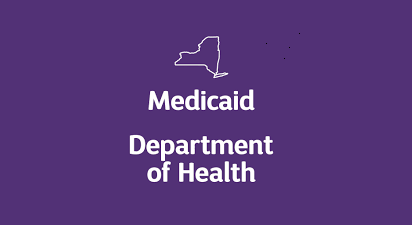In Buffalo, New York, ensuring access to home care services isn't just about preserving independence—it's also about navigating the often complex landscape of financing options. With a diverse array of programs available, residents have the opportunity to secure essential care without the hefty price tag of private arrangements. From Medicaid-covered plans like MLTC, MAP, and PACE to alternative avenues such as EISEP, veterans' benefits, and private long-term care insurance, let's explore the breadth of options available, ensuring everyone can find the care they need while safeguarding their financial well-being.
1. Medicaid Managed Long Term Care (MLTC):
Medicaid Managed Long Term Care (MLTC) programs are essential for individuals aged 18 and above who are Medicaid eligible and require ongoing care. These programs offer a comprehensive suite of services, including home care, tailored to each participant's specific needs.
Beyond just providing care, MLTC prioritizes care coordination, ensuring that participants receive the right support at the right time. By enrolling in MLTC, individuals can access essential services without the financial strain often associated with private pay options.
Moreover, MLTC plans offer flexibility and choice, allowing participants to select the services and providers that best meet their needs. This personalized approach not only enhances the quality of care but also empowers individuals to maintain their independence and autonomy.
2. Managed Care Advantage Plus (MAP):
Managed Care Advantage Plus (MAP) extends the benefits of Medicaid Managed Long Term Care to individuals aged 21 and above who are both Medicaid and Medicare eligible. By integrating Medicaid and Medicare benefits, MAP offers a seamless continuum of care, encompassing both medical and long-term care services.
MAP plans emphasize care coordination, streamlining the care process for participants and their families. Through coordinated efforts, MAP ensures that individuals receive comprehensive support tailored to their unique needs, promoting better health outcomes and improved quality of life.
Additionally, MAP plans offer cost-sharing mechanisms that help alleviate the financial burden of long-term care. By pooling resources and leveraging government funding, MAP plans make quality care accessible to individuals from all walks of life.
3. Program of All-Inclusive Care for the Elderly (PACE):
Program of All-Inclusive Care for the Elderly (PACE) is designed for individuals aged 55 and above who are Medicaid and Medicare eligible. PACE programs offer a holistic approach to care, providing comprehensive medical and social services, including home care, to support participants in aging with dignity and independence.
PACE prioritizes home care services, recognizing the importance of maintaining individuals' connections to their communities. By delivering care directly to participants' homes, PACE programs ensure that individuals can receive the support they need while remaining in familiar surroundings.
Importantly, PACE operates under a capitated payment model, which means that participants pay a fixed monthly fee for all covered services. This predictable cost structure eliminates financial uncertainties for participants, providing peace of mind as they navigate their care journey.
4. Expanded In-Home Services for the Elderly Program (EISEP):
The Expanded In-Home Services for the Elderly Program (EISEP) provides a lifeline for individuals aged 60 and above who require non-medical home care services. From assistance with daily tasks to respite care, EISEP offers essential support to elderly individuals, allowing them to maintain their independence and quality of life.
EISEP operates on a cost-sharing model or suggested donations, ensuring that individuals can access vital care services without facing overwhelming financial burdens. Additionally, EISEP's case management services guide participants through the program, empowering them to make informed decisions about their care.
Through EISEP, elderly individuals can receive personalized care tailored to their unique needs and circumstances. Whether it's assistance with household chores or companionship during the day, EISEP ensures that participants receive the support they need to thrive in their homes.
5. Veterans' Benefits:
Veterans and their spouses may be eligible for home care services through the Veterans' Administration. These services are tailored to the unique needs of veterans, providing comprehensive support to maintain independence and quality of life.
Veterans' benefits offer a cost-effective alternative to private pay arrangements, allowing eligible individuals to access essential care services without excessive expenses. By leveraging the resources of the Veterans' Administration, veterans and their families can receive tailored support to meet their needs.
Additionally, veterans' benefits may extend beyond traditional home care services, encompassing a range of support options such as home modifications and adaptive equipment. By tapping into these resources, veterans can access comprehensive care that addresses their specific needs and preferences.
6. Private Long-Term Care Insurance:
While government programs and veterans' benefits offer valuable support, some individuals may opt for private long-term care insurance to finance their care needs. Private insurance plans vary in coverage and cost, providing individuals with flexibility and choice in selecting the right plan for their needs.
Private long-term care insurance offers an additional layer of financial protection, supplementing government benefits and veterans' benefits to cover a broader range of services. By planning ahead and securing private insurance coverage, individuals can proactively manage their care needs and mitigate financial risks associated with long-term care.
Importantly, private long-term care insurance provides peace of mind for individuals and their families, knowing that essential care services are covered without the worry of financial strain. By exploring private insurance options, individuals can tailor their coverage to meet their unique needs and preferences, ensuring comprehensive support as they age.
In Buffalo, NY, residents have a wealth of options when it comes to accessing affordable home care services. By exploring Medicaid-covered programs like MLTC, MAP, and PACE, as well as alternative avenues such as EISEP, veterans' benefits, and private long-term care insurance, individuals can find the right fit for their needs and eligibility criteria. With a proactive approach to care planning and financial management, Buffalo residents can access quality care while preserving their independence and financial well-being.









